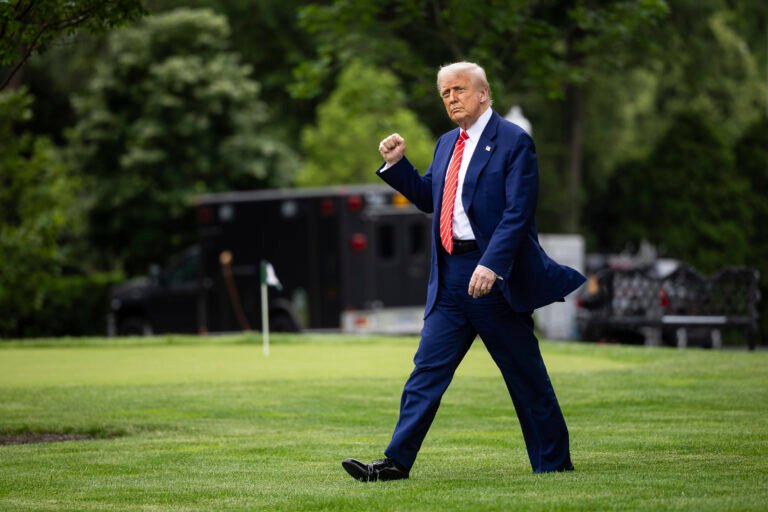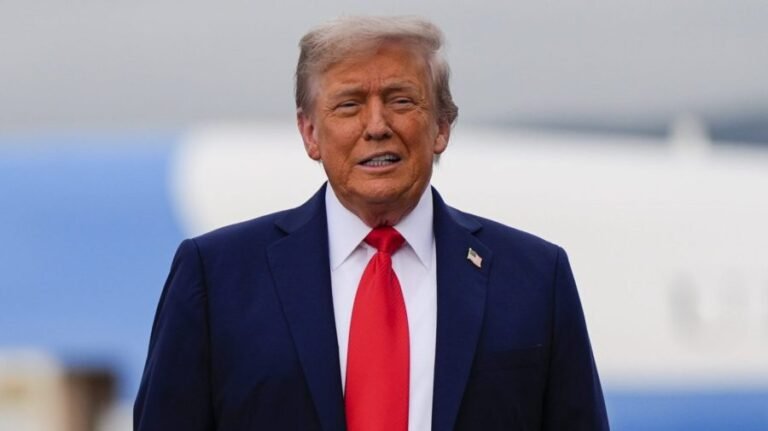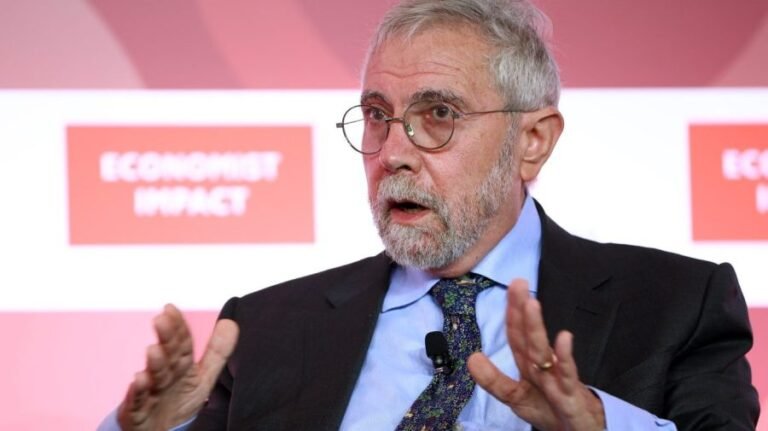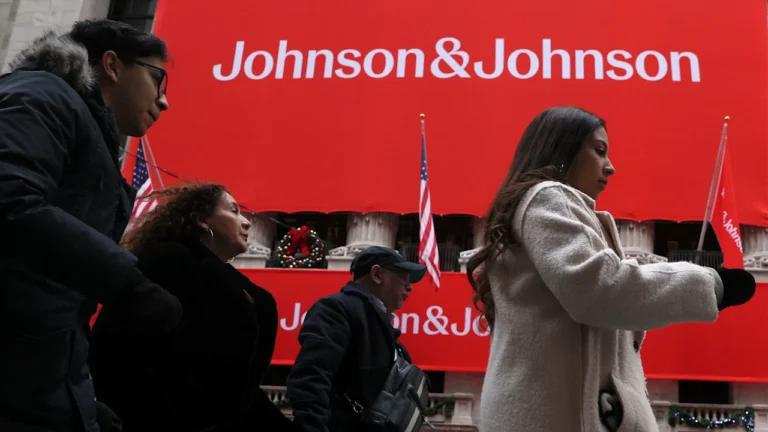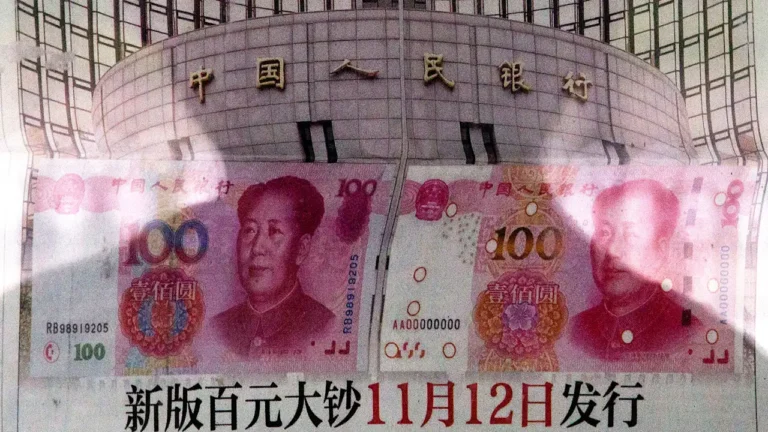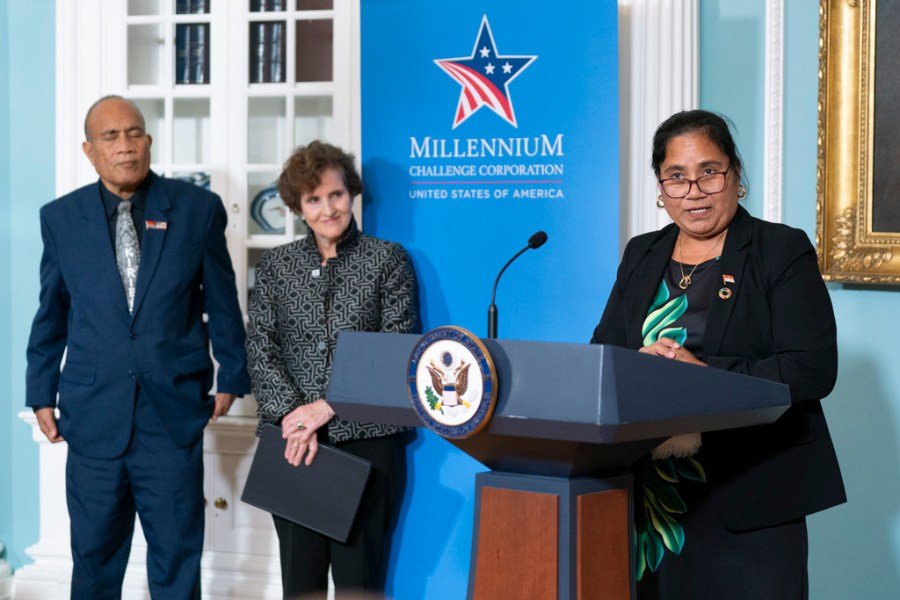
The future is unclear for a key, 20-year-old U.S. government initiative advancing American interests around the world and blunting Chinese and Russian influence.
The Millennium Challenge Corporation changed the way development assistance was done. It has lifted hundreds of millions of people out of poverty since its launch by President George W. Bush in 2004. It was a year after he created the President’s Emergency Plan for AIDS Relief, which has saved more than 26 million people over the past two decades, especially on the African continent.
Both are perfect examples of American soft power at its best. But whereas the AIDS relief program has largely been spared recent budget cutting after some hiccups, the Millennium Challenge Corporation’s future is less clear. Its board meets this week to decide whether to terminate more than half of its portfolio of compacts and smaller threshold programs in various stages of development or implementation. These programs are in Africa and Asia, strategically important regions of the world in which China and Russia would be happy to take our place.
The board should consider the impact of possible cuts to our country’s reputation as a reliable partner and whether such a reduction would actually benefit U.S. economic, national security and diplomatic interests.
Although all government programs should be regularly reviewed for efficiency and effectiveness, it seems shortsighted to drastically reduce the footprint of an agency that has been successfully implementing its mandate to the benefit of U.S. interests. Congress has historically supported the Millennium Challenge Corporation as a model for development and a safeguard for our national security, and its funding level in the House fiscal 2026 appropriations bill demonstrates that support.
The Millennium Challenge Corporation aims to reduce poverty through economic growth and exemplifies how the generosity of the American people can really make a difference overseas in ways that advance U.S. national interests while driving development.
The program has expanded access to electricity in Benin and Georgia so that children can study after dark and hospitals can properly store vaccines. It has created the infrastructure to deliver clean water to homes and businesses in Cape Verde and Mongolia. And it has built or improved roads, airports, ports and bridges in many countries so that people can get to school or work — and efficiently deliver their goods to markets.
In Africa, the program has educated more than 255,500 students, contributed more than 26 million megawatt-hours of electricity, guaranteed over 305,000 households and businesses have legal rights and protections over their land, and improved production for over 70,600 farmers.
The Millennium Challenge Corporation has funded 82 agreements in 49 countries since 2004, benefiting nearly 400 million people. Twenty-five of these countries are in Africa, and these investments have benefited an estimated 154 million Africans.
And it has done all this in financially sound ways. Moreover, this kind of assistance opens doors for the United States, including for American companies seeking to do business in and with these countries.
The Millennium Challenge Corporation took a groundbreaking approach to foreign assistance, requiring that countries qualify based on rigorous third-party indicators measuring democratic governance, investment in health and education, and economic freedom. Countries that don’t meet these criteria aren’t eligible for compacts, which are binding agreements developed in partnership with qualifying countries with rigorous monitoring.
As with the Bush-era AIDS program, the Millennium Challenge Corporation’s focus on Africa is well placed. By 2050, more than 25 percent of the world’s population will live there. By 2030, more than 40 percent of the world’s young people will be African. Already, more than half of the world’s 20 fastest-growing economies are in Africa, along with 65 percent of the world’s arable land and about 30 percent of the world’s mineral reserves.
The Millennium Challenge Corporation engenders tremendous goodwill among the populations of recipient countries and helps counter efforts by Russia and China to insert themselves at the expense of U.S. interests. Whether through cultural engagement programs and educational opportunities, infrastructure investments or military interference, Beijing and Moscow seek to expand their influence in the region while at the same time spreading anti-Western propaganda and taking advantage of disenfranchised or struggling populations to export their authoritarian brand of governance.
This is a risk for the African population, global security and American interests. Without this program, the picture would look much worse. It empowers its partners, championing country ownership of its development projects rather than holding them hostage to burdensome loan terms, like China does. It creates jobs, rather than taking them from the local population. Ut requires transparency and accountability for every dollar spent, as opposed to the shady, corrupt deals China and Russia seek.
There must be accountability both from partner countries and the Millennium Challenge Corporation. The compact countries must maintain their performance on the indicators and implement the compact transparently. Meanwhile, they Millennium Challenge Corporation measures economic rates of return on its investments and rigorously evaluates every program for effectiveness and results.
The Millennium Challenge Corporation demands democratic governance, investment in people, and policies supporting economic freedom from its partners so they can escape poverty and build strong economies, rather than undercutting democracy and saddling its partners with debt. At the same time, it creates opportunities for private investment and develops trade and economic partners. A drastic reduction in its work could leave unfinished projects that China would sweep in and complete — and claim credit for.
The Millennium Challenge Corporation uses foreign assistance dollars responsibly to lift people out of poverty while strengthening U.S. diplomatic ties and economic partnerships — all while fostering a positive view of America among both citizens and governments. Its board should keep this in mind this week.
Monica Vegas Kladakis is senior advisor for Outreach and Strategic Partnerships at the George W. Bush Institute and previously served as managing director for Threshold Programs at MCC. David J. Kramer is executive director the George W. Bush Institute.
